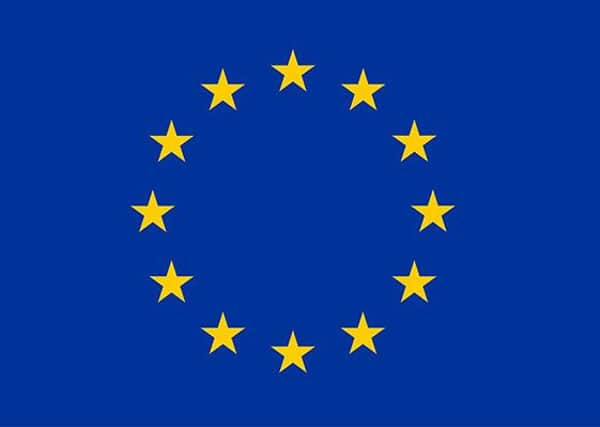Brexit has dealt a savage blow to liberal humanist values


It embraced ideas such as a closed nationalism, an adherence to tradition, authority and religion, an emphasis on instinct and feelings, a belief in ethnic divisions, and an adherence to force and war as purging and liberating values
In Mein Kampf, Hitler stated that ‘irrational impulses’ rather than reason were ‘more characteristic of the German mind’. Mussolini declared: “Peace is absurd: fascism does not believe in it”.
Advertisement
Hide AdAdvertisement
Hide AdAfter 1945, western Europe rejected this destructive creed in favour of liberal humanism, whose main features included a commitment to freedom, reason, tolerance, peace, science and education, human rights and a universalist allegiance to a common humanity.


The European Union played a major part in keeping western Europe peaceful for the last 70 years and was deservedly awarded the Nobel Peace Prize in 2012. The greater economic growth of these countries in the EU and trade between them helped to prevent war, exactly as the Prussian philosopher Kant predicted in the 18th century in Toward Perpetual Peace.
The Union’s membership requirements also helped to push Eastern European states towards democracy. Again, Kant’s idea was that a majority of the people would never vote to go to war, unless purely in self-defence. Therefore, if all nations were republics governed by the will of the people rather than by the whims of autocrats, it would end war, because there would be no aggressors.
There is definite evidence to prove Kant’s point. Democracies rarely fight one another. In 1971 the UN listed 30 democracies. Today there are 123 democracies in a world of 193 countries.
Advertisement
Hide AdAdvertisement
Hide AdNow, this liberal humanist ideology is under serious threat. Resurgent right-wing populist groups are shouting anti-immigration and Eurosceptic slogans across much of the continent. In France, the far right National Front won 6.8 million votes in regional elections in 2015 – its best ever result. Its leader, Marine Le Pen, currently leads in presidential election polls ahead of next year’s elections.


In Greece and Hungary, neo-Nazi members of Golden Dawn and Jobbik have attacked migrants, Roma and their political enemies, and at the same time been able to gain parliamentary representation. In the last national elections, Golden Dawn won 7 percent of the vote, and Jobbik won 20 percent.
In Germany the extreme right AFD Party made an unexpected surge in local elections held in three states in March 2016, and in one state it picked up around a quarter of the votes, while in Austria, the candidate of the right wing Freedom Party (FPÖ) came within 31,000 votes (less than 1%) of winning the presidency in May.
The Brexit result fits the trend. It is a triumph for narrow ethnic English nationalism, racism and xenophobia. These counter-Enlightenment values have been encouraged by a combination of self-serving demagogic politicians, right-wing newspaper proprietors, and blighted centenary commemorations of Britain’s perceived greatness in World Wars, fostering nostalgia for a ‘great’ British past.
Advertisement
Hide AdAdvertisement
Hide AdIt is always easier to promote simple certainties over complex realities. That is what referendums do. Attlee described them as only too often the instrument of Nazism and fascism. Hitler held four between 1933 and 1938, all resulting in massive majorities for his aggressive and undemocratic policies.
Simplification, repetition and misrepresentation were the mantras of the leading Brexiteers, and restricting immigration and the prospect of independence were stressed as the two basic issues. “We want our country back” was a constant slogan of Little Englanders.
The referendum has revealed a deeply divided Britain, especially in terms of class, age and region. Scotland, which voted 62% to 38% to remain, will seek a second referendum on independence and all the signs are that the vote will be a nationalist victory the next time.
Northern Ireland also voted 56% to 44% to remain, partly because the majority have been happy to have closer links with the Republic and do not want the return of a ‘hard’ border. This is likely to happen if it is to be heavily policed in order to keep EU migrants who have entered the Republic from moving into the UK. Once again, Ireland could prove to be Britain’s backdoor.
Advertisement
Hide AdAdvertisement
Hide AdThe majority of unionists, however, voted for Brexit, even though they would hardly feel secure with the break-up of the UK that might result from it. Brexit could therefore prove to be a blessing for Irish nationalists. Unionists should be careful what they wish for.
There is, however, no doubt that the Brexit result has dealt a savage blow to liberal humanist values, and there is much to be done to restore their dominance in Europe.
• Brian McClinton is a director of the Humanist Association of Northern Ireland